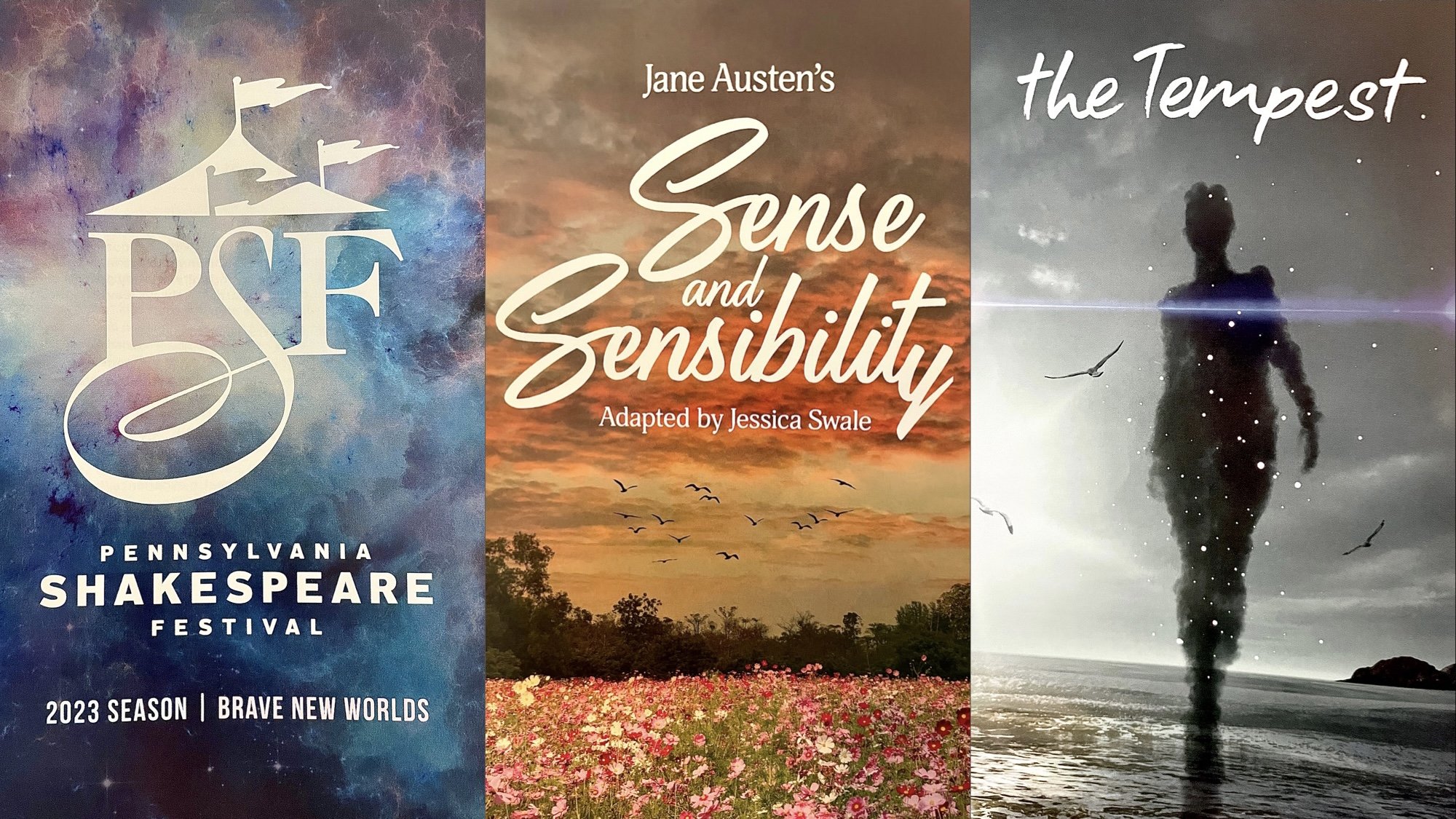In the end, I made two decisions:
First, my job as the actor is to focus on the text I am given and to make as many decisions as possible based on the basic information contained therein. I guess that seems a little obvious, but really, if the playwright is good, everything you really need should already be in the script. I think that is very much the case with GODOT.
Second: Given the first supposition, I must then trust the director (in this case, Ken Marini) to make all of the larger thematic and aesthetic decisions for the production, including how exactly my character should fit into that. I just don’t think it’s possible to see the whole effect of a Beckett play from within it. I think that can only be done from the outside. So that has to fall on the shoulders of a director, perhaps more so than with any other playwright I’ve worked on.
(Theatre is often described as an actor’s medium, meaning that the actors have a great deal of control over the audience’s experience with the storytelling every night. It is the movies which are usually identified as the director’s medium where the director really has that control. But I think that’s mostly true for plays that occur in a familiar setting, with conventional rules. When it comes to absurdist play’s like Beckett’s – or even, say, a musical, when characters break out into song and dance – then a much larger responsibility for “world-building” and story-telling is returned to the director.)
So, I mined my text to establish certain touchstones to help me localize character choices for Pozzo.
Standouts included:
1. “I say does that name mean nothing to you?”
2. “I am perhaps not particularly human, but who cares?”
3. “Is everybody ready? Is everybody looking at me?”
4. “Forget all I said. I don’t remember exactly what it was, but you may be sure there wasn’t a word of truth in it.”
5. “Bless you, gentlemen, bless you! I have such need of encouragement!”
Those little discoveries were then enhanced by several key observations and suggestions from our director, Ken:
1. Pozzo’s kinship in narcissism to certain modern-day political personalities.
2. The idea that Pozzo and Lucky, perhaps, used to be part of a big traveling circus, for which Pozzo was possibly the Master of Ceremonies/Owner.
3. And finally, (and maybe on something of a whim), Ken suggested that I try taking Pozzo’s semi-famous speech describing the end-of-day twilight and turning it into a song instead, which resulted in the vaudeville-ish, music-hall-style tune I offered during the show each night.
The result was, I think, a unique and original Pozzo, yet one still very rooted in Beckett’s text. I cannot and will not claim that I’ve got him “right”, or that we produced the correct result. I must leave that to those who observed the show as a whole, being first our director, Ken, and then each night’s audience. I can accept a full range of responses, both positive and negative, to my version of the character. Everyone will have their own sense of taste, and anyone is certainly allowed to disagree with mine (or Ken’s, depending on how you look at it).
I will only argue that we did not get it “wrong”, because for there to be a “wrong” way, there must also be a “right” way, and I think that for a play like GODOT, and a playwright like Beckett, who was notoriously reluctant to explain his characters or his plays any further than what he wrote in the texts themselves, then as long as you are honoring that text, then you are not doing it “wrong”.
Anyhow, as Higgins tells his mother at a key point in PYGMALION: There’s no sense bothering about that now, the thing is done!
A friend pointed out recently that it’s a rather unusual thing for an actor like myself, at a (yes, relatively) young age, to already have performed in two of Beckett’s plays. It’s something I hadn’t considered, but he is probably right. Maybe that means I’ll be a little further along towards grasping Beckett’s deeper designs when the next opportunity comes around, whenever that might be. Maybe I’ll get to that spot where the light gleams for an instant before time really does stop, maybe not, but that’s just how it is on this Beckett of an earth.













